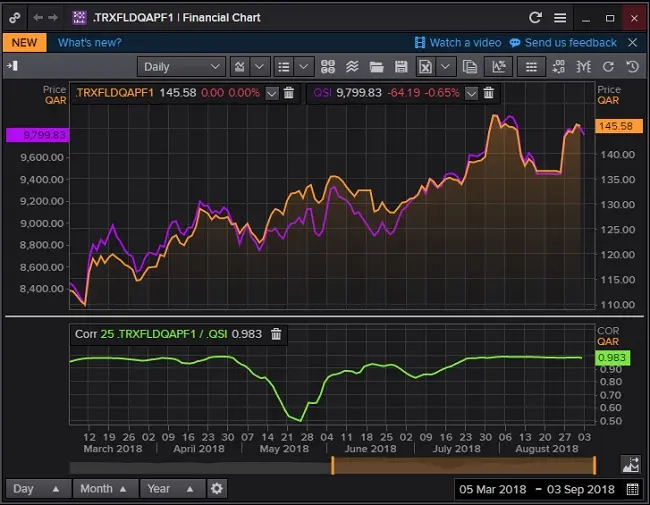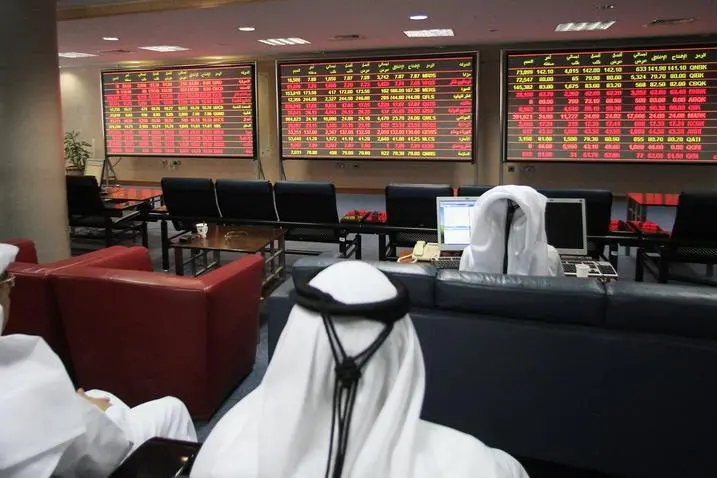PHOTO
(Correction in sixth paragraph to clarify Commercial Bank and Qatar National Bank were the top two losers in the banking sector, not the Qatari stock market as a whole)
Qatar’s stock market performance over the last 13 years has been strongly linked to movement in the banking sector, according to data from Thomson Reuters Eikon.
Data extracted on Monday found the performance of the Qatar Exchange General index (.QSI) and the Thomson Reuters Qatar Banking and Investment Services index (.TRXFLDQAPF1) between May 2005 and September 2018 had a correlation coefficient of + 0.983.
The correlation coefficient interval ranges from -1 to +1, with -1 indicating a perfect negative correlation and +1 indicating a perfect positive correlation.
With the correlation between the market and its banking sector at +0.983 (very close to +1), it indicates that the Qatari stock market is highly dependent on the performance of its banks.
The Qatari market dropped 0.65 percent on Monday, as the banking sector retreated 0.96 percent, data from the exchange showed.
The two top losers in the banking sector were Commercial Bank and Qatar National Bank, dropping 1.43 percent and 1.35 percent respectively.


Source: Eikon
Upper graph: The purple line represents the Qatar Exchange General Index price. The orange line represents Thomson Reuters Qatar Banking and Investment Services Index.
Lower graph: The line represents the correlation between the Qatar Exchange General Index price and the Thomson Reuters Qatar Banking and Investment Services Index.
Qatar National Bank is the stock with most weight on the entire Qatari index, representing 17.61 percent, while Qatar Islamic Bank's weight on the index is 11.61 percent.
The banking sector in Qatar was dragged down in the second week of August by concerns over some banking shares’ exposure to Turkey, but the sector has managed to recover the incurred losses and rebound.
Elsewhere in the Gulf, markets were dull, Dubai’s index dropped 0.43 percent, Abu Dhabi’s index closed 0.05 percent lower, Bahrain’s index dropped 0.17 percent and Kuwait’s index fell 0.82 percent, while Muscat’s index retreated 0.18 percent.
At 11:21 GMT, Saudi Arabia’s index was 0.07 percent higher and Egypt’s index was 0.6 percent lower.
Most markets in the region fell for a second straight session on Monday, tracking negative sentiment across global markets, as a result of trade tensions between the United States and China.
U.S. President Donald Trump had announced he is ready to implement the new tariffs on Chinese products as soon as a public comment period on the plan ends on Thursday.
(Writing by Gerard Aoun; Editing by Shane McGinley)
(gerard.aoun@thomsonreuters.com)
Our Standards: The Thomson Reuters Trust Principles
Disclaimer: This article is provided for informational purposes only. The content does not provide tax, legal or investment advice or opinion regarding the suitability, value or profitability of any particular security, portfolio or investment strategy. Read our full disclaimer policy here.
© ZAWYA 2018





















